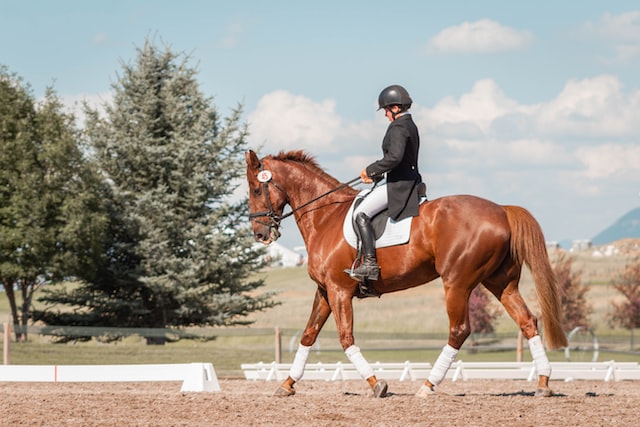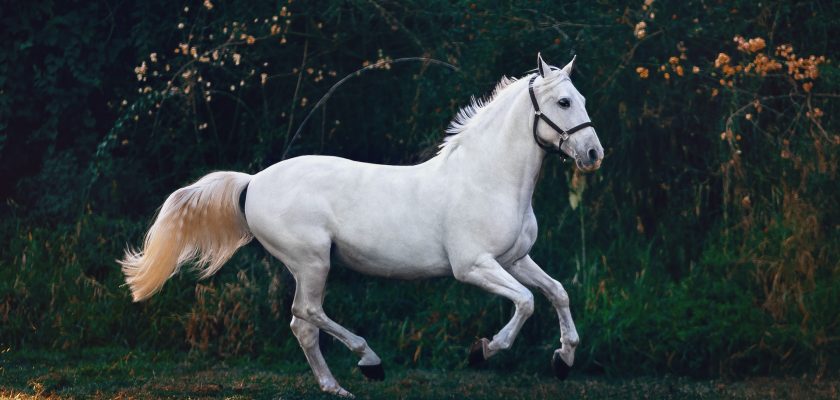There are many things you should know when you are looking to purchase a horse. The cost of the horse can be an important factor in your decision. Whether you are looking to buy a new horse or an existing one, it is important to know what you are getting for your money. This article will provide you with some helpful tips for making a sound purchasing decision.
Identifying needs and evaluating a horse’s ability to meet them
Before buying a horse, you need to identify your needs and evaluate if the horse can meet them. This involves a number of factors, such as the horse’s age, its current state of health and its intended use. You can also ask questions about the horse’s history and temperament.
A pre-purchase examination is a veterinary evaluation that allows you to determine the health of a horse before you buy it. The examination may be carried out using x-rays, radiology, and palpation. These methods are used to evaluate the anatomy of a horse’s soft tissues and bone structures.
Radiology, which uses high-energy rays, is used for lameness and soft tissue examinations. Palpation, on the other hand, is performed to observe how a horse responds to touch. It is a form of non-invasive assessment that is recognized as the gold standard for musculoskeletal evaluation of horses.
Your veterinarian should be able to identify any abnormalities and discuss them with you. You may need to obtain diagnostic tests such as ultrasound, x-rays, and radiographs to get a full picture of the horse’s condition.
When you go to the vet to have a pre-purchase examination, you should have an experienced veterinarian with you. Choose one that specializes in equine medicine and is experienced in the particular breed of horse you are considering.
Whether you are buying a show horse, a racing horse, or a farm animal, you will need to know how to assess its condition. Taking an experienced instructor with you is always a good idea.
Buying from a dealer
If you are considering buying a horse, it’s important to know your rights as a buyer. You may be entitled to a refund if you have bought a defective horse. There are also other remedies if you are not happy with your purchase.
Buying a horse from a dealer offers better protection than buying one from a private seller. To get the best deal, it’s advisable to ask around, check publications and get referrals. Also, make sure the seller has a good reputation.

Photo by Mikayla Storms on Unsplash
A good dealer will offer guidance and answer your questions. They may even be willing to exchange or refund your money if you find that the horse is not suitable for you.
Make sure you have a written purchase agreement when you buy a horse. This will give you extra protection as a buyer and provide you with the evidence you need in the event of a dispute. It will also help you avoid confusion and reduce the chances of you being caught out in court.
If you have purchased a horse from a dealer, you should also remember that you are protected by the Consumer Rights Act 2015. The law states that you have 14 days from the time you receive the horse to decide whether you are satisfied. That time period will help you to deal with issues related to transport, distance between you and the seller, and whether the item is damaged.
Floating
The floating price of a horse varies depending on several factors. However, the cost may be much less than you think. You can expect to pay about $50 to $150 for an annual teeth-floating procedure. This is a small price to pay for the benefits of a healthier mouth.
Floating the horse’s teeth is an important dental health maintenance task. It helps restore your horse’s chewing power without the pain. To do this, your veterinarian will use a variety of tools. The equine dental speculum is a common tool. It uses metal plates placed over the incisors to flatten out the sharp edges of the tooth.
There are a few things you need to know before you can make the best decision on whether or not to float your horse’s teeth. First, you need to consider your horse’s age. If your horse is under two years old, you can likely get away with a single float. In contrast, older horses require several yearly trips to the dentist’s office. Likewise, some breeds are more susceptible to teeth-related problems than others.
Also, you’ll need to budget for unexpected medical costs, including colic and infections. For example, your vet might recommend a booster inoculation, which will cost you an additional visit. Other expenses include medication, extractions, and sedation. Some specialized vets will charge a premium for their services.
Overall, the floating price of a horse varies by region, but the average cost is around $100 to $150. On top of this, you’ll need to plan for a visit to the farm for a float-in.
Full-care board
Full-care board is one of the most expensive options for horse owners. However, it can be the best option if you do not have the time to look after your horse on a daily basis. It provides all of the basic necessities for your horse, such as food, water, and a stall. You also have the option of getting extra services such as a farrier checkup, grooming, and training.
Partial boarding is another option that can save you a lot of money. A partial board provides the same services as full-care board, but with a lower monthly cost. The cost is usually around $3,600 to $5,400 per year. This is a better choice for budget-conscious horse owners.
If you live too far away to visit your horse, you may want to consider self-care boarding. This is the cheapest option and enables you to take care of your horse on a daily basis.

Image by Unsplash+
Self-care boarding allows you to visit your horse whenever you like. If you prefer a regular schedule, you can choose to have the horse stay at the stable for a few hours each day.
For a more hands-on approach, you can opt for pasture boarding. Similar to full care, this option is cheaper, but it allows your horse to spend more time outdoors. In addition to providing a clean and sanitary environment, pasture boarding includes turnouts and a field for your horse.
Basic horse owner gear costs
The basic horse owner gear costs from several hundred dollars to a few thousand dollars or more depending on the type of rider. In general, horses are quite expensive and the best thing to do is shop around and compare prices. There are many factors to consider, including the cost of ownership, the perks of having a horse, and your individual preferences. A thorough vetting process is essential, as you never know if a particular horse is the right one for you.
It’s also worth noting that the costs of owning a horse vary widely by region. For example, it’s not uncommon to pay hundreds of dollars more for a horse in the South than it is in the North. This is because of the higher costs of maintaining facilities in more remote locales. Furthermore, a horse’s health care costs will differ substantially, as will the cost of grooming and other maintenance activities. You should also keep in mind that owning a horse requires a lot of time, dedication and attention to detail, as well as a healthy dose of self-discipline.
Keeping in mind that your horse is a critter and not a human, it’s a good idea to hire a professional to help maintain and ride your prized possession. As with any pet, you should also consult with your veterinarian about any special requirements your new horse may have.
Maintaining the health of your horse
If you’re looking to buy a horse, be sure to check for health conditions. You can prevent a lot of health issues by making sure your horse is properly checked.
A healthy digestive system is vital for a horse. It helps keep a horse’s appetite in check and allows it to absorb nutrients optimally. Also, a good digestive system will ensure your horse maintains a steady weight.
For most horses, their basic diet should include clean hay or grass. Adding grains is okay if the grain is of high quality.
Maintaining a healthy digestive system is the most important part of your horse’s health. Proper management can minimize exposure to parasites.
To support a healthy digestive system, your horse should have access to high-quality hay and clean water at all times. It is also beneficial to provide a mineral block for your horse in its paddock.
Your horse’s teeth should be examined twice a year by a veterinarian. Teeth that are loose or missing can cause pain and difficulty chewing. Dental disease can also lead to weight loss.
Checking your horse’s teeth regularly can prevent dental problems. If your horse has a problem, the vet may recommend X-rays, acupuncture, or chiropractic work.
Keep your horse’s legs in good condition by letting him move from his paddock. Keeping a horse in a stall for long periods of time can cause your horse to become stressed and unfit.
